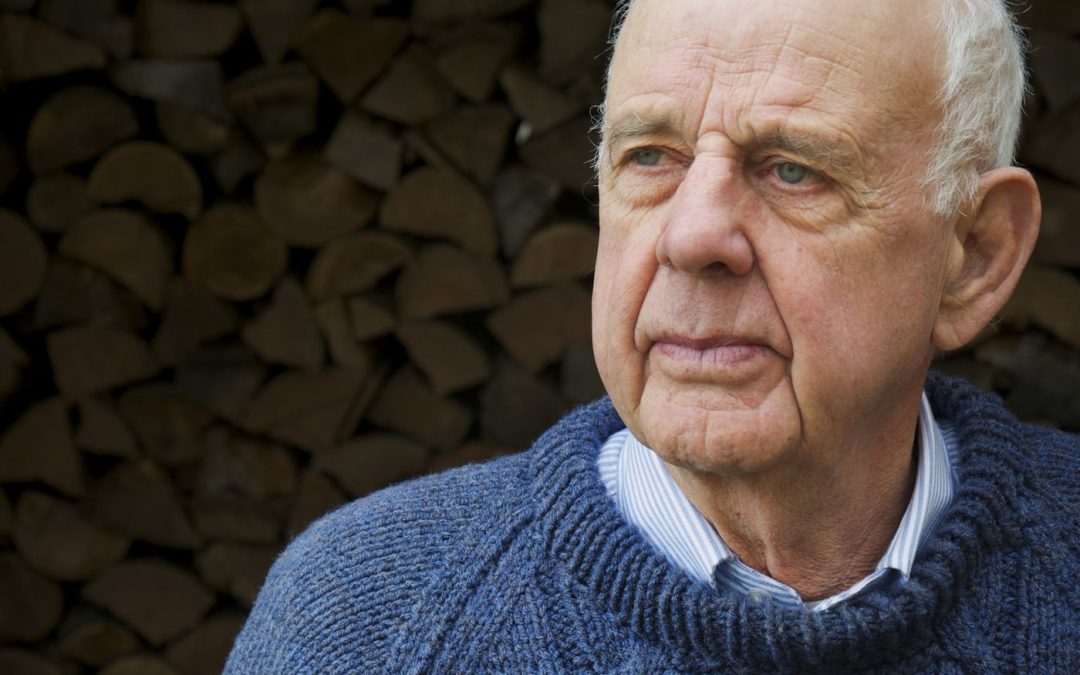Wendell Berry, a poet, novelist, and environmental activist, lives his religious naturalist orientation to the fullest, farming his land in Kentucky and speaking to our deepest and most important understandings. I’ll start with my two favorite poems and then lift up some quotes.
When despair for the world grows in me
and I wake in the night at the least sound
in fear of what my life and children’s lives may be
I go and lie down where the wood drake
rests in his beauty on the water, and the great heron feeds.
I come into the peace of wild things
who do not tax their lives with forethought
of grief. I come into the presence of still water.
And I feel above me the day-blind stars
waiting with their light. For a time
I rest in the grace of the world, and I am free.
Wendell Berry, The Peace of Wild Things
If we will have the wisdom to survive,
to stand like slow-growing trees
on a ruined place, renewing, enriching it,
if we will make our seasons welcome here,
asking not too much of earth or heaven,
then a long time after we are dead
the lives our lives prepare will live
here, their houses strongly placed
upon the valley sides, fields and gardens
rich in the windows. The river will run
clear, as we never know it,
and over it, birdsong like a canopy.
On the levels of the hills will be
green meadows, stock bells in noon shade.
On the steeps where greed and ignorance cut down
the old forest, an old forest will stand,
its rich leaf-fall drifting on its roots.
The veins of forgotten springs will have opened.
Families will be singing in the fields.
In their voices they will hear a music
risen out of the ground. They will take
nothing from the ground they will not return,
whatever the grief at parting. Memory,
native to this valley, will spread over it
like a grove, and memory will grow
into legend, legend into song, song
into sacrament. The abundance of this place,
the songs of its people and its birds,
will be health and wisdom and indwelling
light. This is no paradisal dream.
Its hardship is its possibility.
— Wendell Berry, 1999, A Vision
We have the world to live in on the condition that we will take good care of it. And to take good care of it, we have to know it. And to know it and to be willing to take care of it, we have to love it.
We have lived our lives by the assumption that what was good for us would be good for the world. We have been wrong. We must change our lives so that it will be possible to live by the contrary assumption, that what is good for the world will be good for us. And that requires that we make the effort to know the world and learn what is good for it.
The care of the earth is our most ancient and most worthy and, after all, our most pleasing responsibility. To cherish what remains of it, and to foster its renewal, is our only legitimate hope.
Let us have the candor to acknowledge that what we call “the economy” or “the free market” is less and less distinguishable from warfare.
It is easy for me to imagine that the next great division of the world will be between people who wish to live as creatures and people who wish to live as machines.
Protest that endures, I think, is moved by a hope far more modest than that of public success: namely, the hope of preserving qualities in one’s own heart and spirit that would be destroyed by acquiescence.
We have neglected the truth that a good farmer is a craftsman of the highest order, a kind of artist.
Do unto those downstream as you would have those upstream do unto you.
